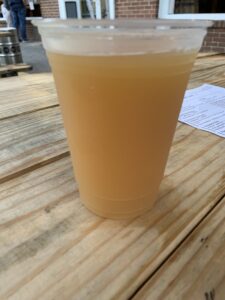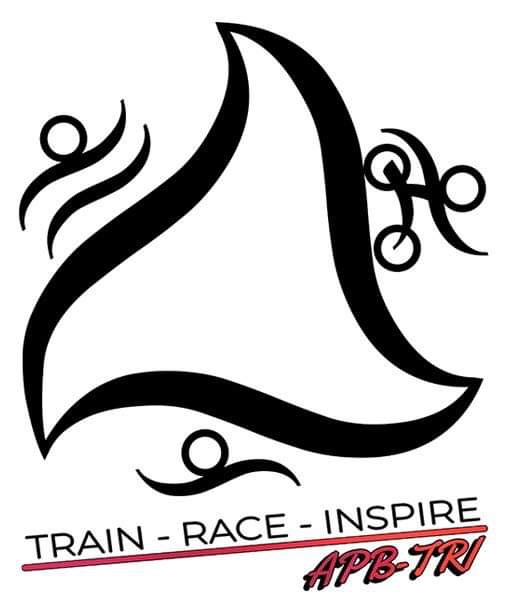Alcohol in endurance training is most definitely a contentious subject. On one hand, many enjoy a cold one as a reward for work well done. On the other, I don’t think anybody would argue that it’s the healthiest beverage out there. So how does it impact my endurance racing and training?
Types of alcoholic drinks

We know there are many options for alcohol intake. You may be more of a wine or a beer person. Or are you one of the fans of mixed cocktails? I am trying to decide if this picture is telling or confusing… I ever drink only one type of alcohol and you can probably tell from the picture which one 😜.
Benefits of alcohol drinking
Alcohol can be good for you if you drink it in moderate amounts. And no, binge drinking with your frat bros is not moderate, even if you do it only once a month. Moderate drinking is defined as one serving for women and 1-2 servings for men. In this case, serving is a glass of wine or a 12oz bottle of beer. If you want conversion to other alcohols, you may need to look it up. On the other hand, I don’t think I have ever heard of other drinks being good for you (unless you count them being a social lubricant as a benefit).
Before we go any further: your body’s reactions to alcohol are unique to you. There are some health conditions that make ingesting any amount of alcohol incredibly dangerous. Benefits listed below are meant for healthy adults without any additional risk factors.
According to Mayo Clinic, moderate amounts of alcohol may possibly decrease risk of heart disease and diabetes. But even they didn’t sound 100% convinced. I can’t speak to your risk of developing diabetes, but I am going to guess that if you are here, you are probably addressing your heart disease risk through exercise.
Issues with alcohol in endurance training and racing
Nutrition
No good news in here… Actually to the extent that I have a hard time choosing where to start…
Let’s go with this: it’s totally empty calories. Each gram of alcohol converts into 7 calories. Unfortunately, it metabolizes into fat, not glycogen, and it can’t be used as energy. It gets stored in the liver (fatty liver, anyone?) and flow in the blood stream, increasing your chance of heart disease. Full disclosure: this discovery confused me a bit, as haven’t doctors said something about a glass of wine per day being good for preventing heart disease? Anywho… Alcohol is not good source of energy.
Alcohol can irritate your GI tract, which heavy drinkers may have seen more acute symptoms 💩. But even without that, unhappy bowels mean poor absorption of vitamins, minerals and other nutrients. Booze causes also general metabolism problems through impairing liver function, further compromising your ability to nurture your body properly.
As a diuretic (more on that later), alcohol removes magnesium and calcium from your body. That’s a recipe for cramps right away and osteoporosis in a long run right there!
Alcohol as diuretic

How many times have you heard people say that they want to cool down with a cold one at the beach/ by the pool? Probably like me: way too many. Alcohol is actually a diuretic, which means it removes more water from your body than you take in. Not exactly the smartest idea when you are in the heat and are trying to stay hydrated, does it?
Oh, and since we are already on the issue of heat: it impairs your body’s ability to regulate temperature. On one side, you do have heat and your body’s ability to properly cool itself. On the other is feeling hotter than what the conditions are really like, leading to excessive loss of heat. You may end up way underdressed when going outside into frigid air. That’s inadvisable, whether you’re heading out for a run or just walking home down the street.
Muscle building and recovery
Based on everything said before, I don’t think it will surprise you to hear that alcohol will make post-race/ workout recovery harder.
If you are an endurance athlete, you are likely seriously dehydrated after your race or a particularly long session. You are most likely in no position to lose any more water, at least not until you rehydrate properly. So please don’t try to rehydrate with a beer!
So you depleted your glycogen stores? Sad news: alcohol may make it harder for you to replenish them. And that’s not even considering your attempt to use beer calories as replacement for the ones you just burned.
Ok, here is one I have been guilty of in the past… So you come home after a marathon and EVERYTHING hurts from pounding the pavement for 4+ hours (in my case). A nice little beer will make you forget the pain, right? Well, that may be true, but… Alcohol slows down healing. And it’s not just big injuries, like twisted ankle or a pulled muscle. We are also talking about micro-tears to your muscles sustained during exercise. Not ok! One of the reasons this happens is because alcohol dilates your blood vessels, which is exact opposite to what you’re trying to do when you ice sore areas.
Cognitive impairment

You know that one, right? I don’t think it really requires much of explanation to anybody who has ever drunk alcohol: it impairs your eye-hand coordination, makes your moves sloppy and takes away a few IQ points. Working out after a drink is a total no-no.
Biking under the influence is as bad as drunk driving. In fact, many places have laws that it is a DUI when you’re caught pedaling away with above-limit blood alcohol levels.
Running after a shot or a beer? You already made your body work hard to dispose of the alcohol, you’re dehydrated and now you think you can just go for a run? I am not even talking about your performance being impaired. Just not tripping over your own feet can become a challenge!
Don’t ever drink and swim. To be fair: alcohol and water don’t ever mix. I know plenty of people think that drinking on a boat is awesome, too. Just wait until you’re back safely in the marina…
Weight training and booze? Oh, yeah, I am sure that all those super-heavy machines are totally safe when your moves are already sloppy and your muscle aren’t in top shape 🥴.
Bottom line of this section: don’t drink just before or during your workout! Hangover is in this class, too…
Conclusion regarding alcohol in endurance training
Alcohol can be fun and if you are an adult, you are free to make your own choices. However, it’s not indifferent to your body. As such, you should evaluate your goals and whether they are compatible with occasional indulgence in an adult beverage. Overall evidence, though, says you should limit them.
